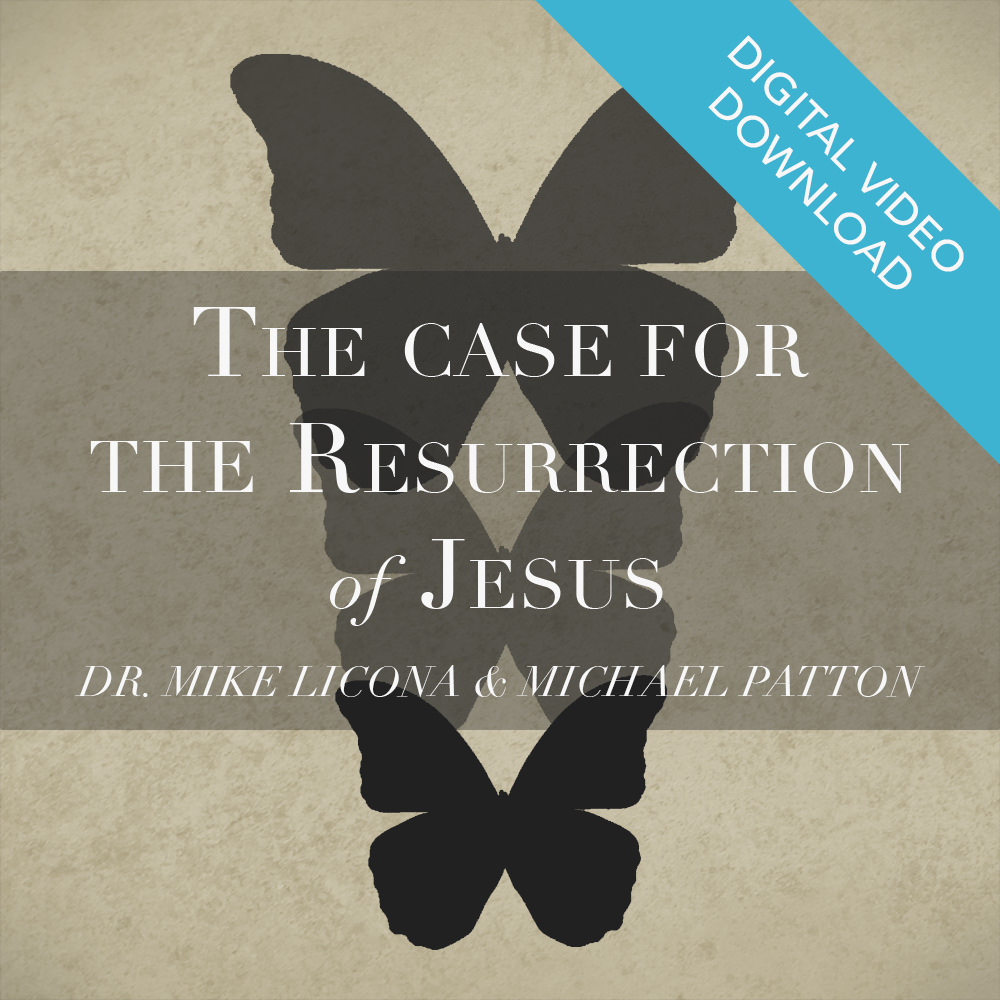The story of Jesus’ resurrection from the dead is a cornerstone of the Christian faith. It forms the basis for the belief in eternal life and stands as the central event that distinguishes Christianity from other religions. But beyond its religious significance, the resurrection of Jesus has sparked countless debates and investigations, prompting questions about its historical validity and its implications for our understanding of history and reality itself. While faith plays a crucial role in the acceptance of the resurrection, there are numerous historical and evidential factors that contribute to a compelling case for its reality.

Image: www.credocourses.com
As a Christian myself, the resurrection has always profoundly impacted my life. The hope it offers in the face of mortality, the assurance of a life beyond this one, and the promise of a personal relationship with God – these are the pillars of my faith, grounded in the narrative of Jesus’ victory over death. But beyond personal conviction, I’ve also found myself intrigued by the historical evidence surrounding the resurrection, a topic I delve into further in this article.
Exploring the Historical Evidence
The resurrection of Jesus is not a mere theological concept but a historical claim. It is recorded in the New Testament, specifically in the four Gospels, and corroborated by early Christian writings and the actions of the first followers of Jesus.
The historical evidence for the resurrection rests on these key pillars:
1. The Empty Tomb
All four Gospels, written within a generation of Jesus’ death, present a consistent account of an empty tomb. This is a significant point as it challenges the most basic explanation of Jesus’ absence – that he simply remained buried. The empty tomb necessitates an explanation for the missing body.
2. The Post-Resurrection Appearances
The Gospels and other early Christian texts recount numerous sightings of Jesus after his death. These appearances were not mere hallucinations or visions. They involved physical interactions, conversations, and even the sharing of food, pointing to a tangible reality.

Image: www.wildlyanchored.com
3. The Transformation of Jesus’ Followers
The radical transformation of Jesus’ disciples, from fearful men hiding in fear to courageous proclaimers of his resurrection, is another compelling piece of evidence. They faced persecution and death for their belief in the risen Christ, a level of commitment that is hard to explain without a genuine encounter with the resurrected Jesus.
4. The Birth of the Christian Church
The rapid spread of Christianity, despite facing severe opposition from the Roman Empire, is a testament to the power and conviction behind the resurrection message. The Church’s foundation rests on the belief in the resurrection, a belief that fueled its growth and influence.
5. The Impact on History
The resurrection of Jesus had a profound impact on the course of Western history. It transformed the world, sparking countless philosophical, theological, and social changes. It continues to shape our understanding of life, death, and the human condition.
Contemporary Perspectives and Debates
While the resurrection is central to Christian faith, debates and questions surrounding its historical validity continue even today. Some argue that the resurrection was a spiritual experience, a psychological phenomenon experienced by Jesus’ followers, while others dismiss it entirely as a myth.
The debate often circles around the issue of evidence. Critics point to the lack of independent corroboration outside of Christian sources, the potential for embellishment in early Christian writings, and the possibility of misinterpretations of events. However, proponents of the resurrection argue that the historical evidence, combined with the internal consistency and early attestation of the resurrection claim, provides compelling grounds for its acceptance.
Tips for Approaching the Resurrection
While the resurrection is a matter of faith, it can also be approached through a process of critical thinking and historical investigation. Here are some tips for exploring this topic:
- Engage with the evidence: Examine the historical accounts of the resurrection in the Gospels and other early Christian sources.
- Read different perspectives: Explore views from both Christian and non-Christian scholars, including those who accept and those who reject the resurrection.
- Ask thoughtful questions: Don’t be afraid to challenge existing beliefs and seek answers to your questions.
- Pray and reflect: Consider the implications of the resurrection for your own life and faith.
Remember, the journey of faith is a personal one. Approaching the resurrection with an open mind and a desire to understand will lead to a deeper and more meaningful experience.
FAQ
Q: Is there archaeological evidence for the resurrection?
No, there is no direct archaeological evidence for the resurrection. Archaeological evidence can provide context and insights into the historical setting, but it cannot definitively prove or disprove a supernatural event like the resurrection.
Q: How do skeptics explain the empty tomb?
Skeptics often offer alternative explanations for the empty tomb, such as a stolen body or a mistaken identity. They point to the lack of independent corroboration and the possibility of embellishment in the Gospels.
Q: If the resurrection is a fact, why isn’t it more widely accepted?
The acceptance of the resurrection is often influenced by personal beliefs and worldviews. Skepticism towards the supernatural, a lack of exposure to Christian teachings, and a preference for scientific explanations can all factor into the acceptance or rejection of the resurrection.
The Case For The Resurrection Of Jesus Pdf
Conclusion
The case for the resurrection of Jesus remains a topic of intense debate and a matter of personal faith. While the historical evidence may not be conclusive to everyone, it provides a compelling foundation for exploring the central claim of Christianity. The resurrection offers hope, redemption, and the promise of eternal life, shaping the lives of countless individuals throughout history and continuing to inspire wonder and debate today.
Are you interested in learning more about the resurrection of Jesus? Share your thoughts, questions, or experiences in the comments below!





